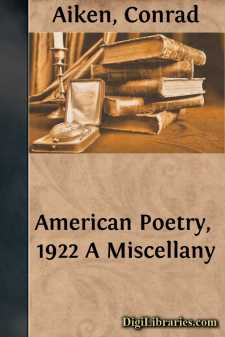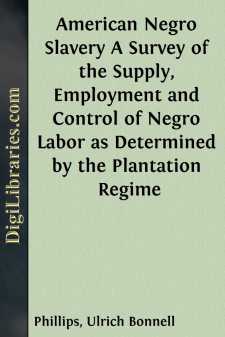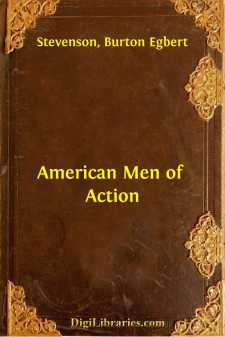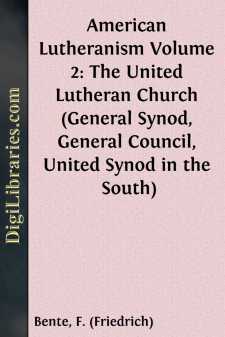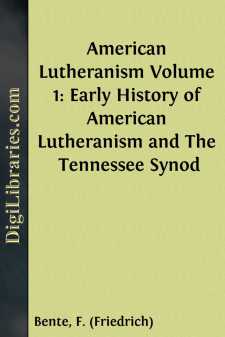Categories
- Antiques & Collectibles 13
- Architecture 36
- Art 48
- Bibles 22
- Biography & Autobiography 813
- Body, Mind & Spirit 142
- Business & Economics 28
- Children's Books 16
- Children's Fiction 13
- Computers 4
- Cooking 94
- Crafts & Hobbies 4
- Drama 346
- Education 46
- Family & Relationships 57
- Fiction 11829
- Games 19
- Gardening 17
- Health & Fitness 34
- History 1377
- House & Home 1
- Humor 147
- Juvenile Fiction 1873
- Juvenile Nonfiction 202
- Language Arts & Disciplines 88
- Law 16
- Literary Collections 686
- Literary Criticism 179
- Mathematics 13
- Medical 41
- Music 40
- Nature 179
- Non-Classifiable 1768
- Performing Arts 7
- Periodicals 1453
- Philosophy 64
- Photography 2
- Poetry 896
- Political Science 203
- Psychology 42
- Reference 154
- Religion 513
- Science 126
- Self-Help 84
- Social Science 81
- Sports & Recreation 34
- Study Aids 3
- Technology & Engineering 59
- Transportation 23
- Travel 463
- True Crime 29
Sort by:
by:
John Fiske
I. The traveller from the Old World, who has a few weeks at his disposal for a visit to the United States, usually passes straight from one to another of our principal cities, such as Boston, New York, Washington, or Chicago, stopping for a day or two perhaps at Niagara Falls,--or, perhaps, after traversing a distance like that which separates England from Mesopotamia, reaches the vast table-lands of...
more...
by:
Conrad Aiken
A FOREWORD When the first Miscellany of American Poetry appeared in 1920, innumerable were the questions asked by both readers and reviewers of publishers and contributors alike. The modest note on the jacket appeared to satisfy no one. The volume purported to have no editor, yet a collection without an editor was pronounced preposterous. It was obviously not the organ of a school, yet it did not seem...
more...
by:
Rudyard Kipling
Introduction In an issue of the London World in April, 1890, there appeared the following paragraph: "Two small rooms connected by a tiny hall afford sufficient space to contain Mr. Rudyard Kipling, the literary hero of the present hour, 'the man who came from nowhere,' as he says himself, and who a year ago was consciously nothing in the literary world." Six months previous to this...
more...
Our theme for the hour is the American Newspaper. It is a subject in which everybody is interested, and about which it is not polite to say that anybody is not well informed; for, although there are scattered through the land many persons, I am sorry to say, unable to pay for a newspaper, I have never yet heard of anybody unable to edit one. The topic has many points of view, and invites various study...
more...
CHAPTER I THE DISCOVERY AND EXPLOITATION OF GUINEA The Portuguese began exploring the west coast of Africa shortly before Christopher Columbus was born; and no sooner did they encounter negroes than they began to seize and carry them in captivity to Lisbon. The court chronicler Azurara set himself in 1452, at the command of Prince Henry, to record the valiant exploits of the negro-catchers. Reflecting...
more...
CHAPTER I. The American Ship and the American Sailor—New England's Lead on the Ocean—The Earliest American Ship-Building—How the Shipyards Multiplied—Lawless Times on the High Seas—Ship-Building in the Forests and on the Farm—Some Early Types—The Course of Maritime Trade—The First Schooner and the First Full-Rigged Ship—Jealousy and Antagonism of England—The Pest of...
more...
"MEN OF MIND" In the companion volume of this series, "Men of Action," the attempt was made to give the essential facts of American history by sketching in broad outline the men who made that history—the discoverers, pioneers, presidents, statesmen, soldiers, and sailors—and describing the part which each of them played. It was almost like watching a great building grow under the...
more...
CHAPTER I A TALK ABOUT BIOGRAPHY No doubt most of you think biography dull reading. You would much rather sit down with a good story. But have you ever thought what a story is? It is nothing but a bit of make-believe biography. Let us see, in the first place, just what biography means. It is formed from two Greek words, "bios," meaning life, and "graphein," meaning to write:...
more...
MERGER. 1. Origin of the New Body.—On April 18, 1917, at Philadelphia, the Joint Quadricentennial Committee, appointed by the General Synod, the General Council, and the United Synod in the South to arrange for a union celebration of the Reformation, decided that the merging of the three affiliated general bodies would be "the fittest commemoration and noblest memorial of the four-hundredth...
more...
AMERICAN LUTHERANISM Volume I Early History of American Lutheranism and The Tennessee Synod By F. BENTE St. Louis, Mo. CONCORDIA PUBLISHING HOUSE 1919 PREFACE. Essentially, Christianity is the special divine faith in the truth revealed by the Bible that we are saved, not by our own efforts, works, or merits, but alone by the pure and unmerited grace of God, secured by Christ Jesus and freely offered in...
more...



